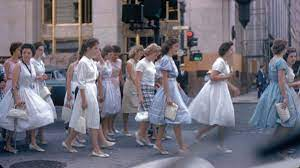This blog is written in response to the Thinking Activity on the Poems of W. B. Yeats, given by Dr. Dilip Barad Sir at the Department of English, MKBU.
Poems by W. B. Yeats (1865-1939)
William Butler Yeats (1865–1939) was an Irish poet, playwright, and one of the foremost figures of 20th-century literature. He was a driving force behind the Irish Literary Revival and was one of the co-founders of the Abbey Theatre. He was a recipient of the Nobel Prize in Literature in 1923. His work was greatly influenced by Irish mythology and folklore, and his interest in these areas led him to found the Irish National Theatre Society. He often wrote in a symbolic and mystical style, and his poems showed a deep appreciation of the natural world. His best-known works include "The Lake Isle of Innisfree," "The Wild Swans at Coole," and "The Second Coming." He was also a prolific essayist and critic, and wrote several plays, including Cathleen Ni Houlihan (1902), and The King's Threshold (1904).
The Second Coming
Turning and turning in the widening gyre
The falcon cannot hear the falconer;
Things fall apart; the centre cannot hold;
Mere anarchy is loosed upon the world,
The blood-dimmed tide is loosed, and everywhere
The ceremony of innocence is drowned;
The best lack all conviction, while the worst
Are full of passionate intensity.
Surely some revelation is at hand;
Surely the Second Coming is at hand.
The Second Coming! Hardly are those words out
When a vast image out of Spiritus Mundi
Troubles my sight: somewhere in sands of the desert
A shape with lion body and the head of a man,
A gaze blank and pitiless as the sun,
Is moving its slow thighs, while all about it
Reel shadows of the indignant desert birds.
The darkness drops again; but now I know
That twenty centuries of stony sleep
Were vexed to nightmare by a rocking cradle,
And what rough beast, its hour come round at last,
Slouches towards Bethlehem to be born?
On Being Asked for a War Poem
I think it better that in times like these
A poet's mouth be silent, for in truth
We have no gift to set a statesman right;
He has had enough of meddling who can please
A young girl in the indolence of her youth,
Or an old man upon a winter’s night.
This poem contains six lines, with rhyme scheme of ABC, ABC. The first three lines are about what a poet thinks about writing about war and in the other three lines he writes about what the writer's purpose is and where his limits are.
W B Yeats was asked for a war poem by the American novelist Henry James who with Edith Wharton was editing an anthology of war poems, ‘The Book of Homeless’. Yeats wrote a poem but it was not a war poem but an artistic refusal for being asked to write a war poem.
Yeats wrote the poem on 6 February, 1915 with title "To a friend who has asked me to sign his manifesto to the neutral nations" but later changed it into "A Reason for Keeping Silent" before sending it in a letter to James. The poem was first published in Edith Wharton's ‘The Book of the Homeless’ in 1916 as "A Reason for Keeping Silent". Later the poem was reprinted in ‘The Wild Swans at Coole’, that time the title was changed to "On being asked for a War Poem".
In the first three lines Yeats says what a poet should do in such situations. For him a poet should stay away from politics and situations like war as he has less influence than “ statesman” political leaders on the public. Yeats say that poets have “no gift to set a statesman right” , so they better be silent in such happenings like war, that sometimes created by politicians and leaders just to gain some political agendas and fulfil their propaganda.
In the last three lines Yeats discusses what the role of the poets is. According to him, rather than being political and fulfilling the propaganda of politicians, the poet's main purpose is to please his readers. “Enough of meddling”, through this line the poet wants to say that he does not want to meddle in political propaganda as he has enough of it as he writes for “young girl in the indolence of her youth” and for “ old man upon a winter’s night”. Through his two examples of “young girl” and “old man” he establishes his view of poet’s concerns that poet should write about ‘Youth and Wisdom”, than political issue.
Thank you for visiting this blog....











.jpeg)






No comments:
Post a Comment